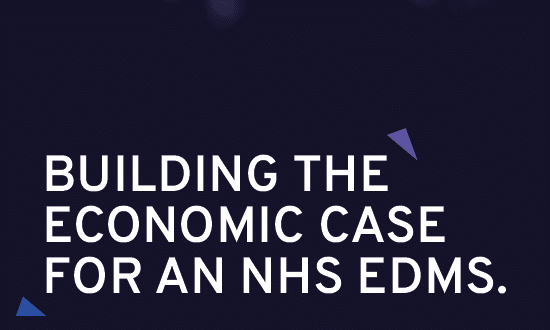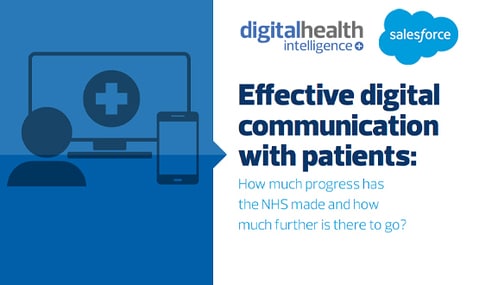Insider view: Lyn Whitfield
- 15 July 2010
The Department of Health doesn’t really do glitzy; but even by its standards the launch of the latest NHS white paper was a low-key affair.
Some of the hacks ushered into the bunker where the DH holds its press conferences could remember Virginia Bottomley offering them tea and biscuits at similar events in the 1980s. But there was no tea and there were no biscuits on Monday.
Indeed, there were few facilities of any kind. Even the copies of Equity and excellence: Liberating the NHS that were handed out showed signs of being photocopied in a hurry.
White papers past
It is not always the most exhaustively consulted, carefully written and expensively printed papers that have the most impact on the NHS.
Famously, when Margaret Thatcher asked Sainsbury boss Roy Griffiths to review the NHS, he sent back a letter instead of a report. The result was the introduction of general management.
The subsequent white paper, Working for Patients, was also noticeably short on detail. Yet it introduced the internal market that is with us to this day.
Conversely, The NHS Plan, which was launched with more glitz than usual to mark the 50th anniversary of the NHS, foundered in the face of New Labour infighting and a cash crisis that it probably helped to create.
Even so, the papers that have had a big impact on the NHS have tended to be very clear about the big thing that they want to achieve – and it’s not really clear what ‘Liberating the NHS’ is aiming to do.
The headline message, of course, is that health secretary, Andrew Lansley, wants to hand commissioning to GPs. He believes they are the right people to commission £80 billion of NHS services because patients like and trust them and they are natural entrepreneurs.
Most of the early debate about the white paper has focused on whether Lansley is right, and whether it will be good or bad for the health service if he is.
However, other readings are possible. Down in the bowels of Richmond House, Lansley spent more time talking about beefing up competition between healthcare providers and about his “information revolution” to drive patient choice than he did about GPs.
Meanwhile, unions are fretting that the paper has a hidden agenda to let private healthcare companies into the health service, by letting them advise the new GP commissioning consortia.
And management attention has been focused on how the NHS is going to get from A to B at a time of “unprecedented” financial strain – using strategic health authority and primary care trust staff who will be out of a job in two years.
Reorganisations present
In the middle of all this, nobody has pointed out that NHS revolutions are almost never completed. There would not have been so many white papers over the years if they were.
Yet if ‘Liberating the NHS’ was stopped in its tracks for any reason, the health service would find itself in a very odd place indeed.
On Tuesday, NHS chief executive Sir David Nicholson sent a letter to the health service in which he said: "I intend to strengthen central controls on quality, finance, operations and delivery through the next two years while we build the new system.”
The white paper itself sets out a timetable for action that will create the new NHS Commissioning Board and leave both SHAs and PCTs in place while the new commissioning consortia are established.
So the immediate, if unintended, effect of Liberating the NHS will be to pull power to the centre; and there it would stick if, for example, we had a change of health secretary or the coalition collapsed or there was a good old fashioned cash crisis.
If the commissioning consortia are set up and SHAs and PCTs abolished on schedule, consortia will get their first allocations from the NHS Commissioning Board in 2012 and take over provider contracts in 2013.
Even if this happens, the detail of the white paper suggests GPs will have much less power than those headlines assume, because of decisions that Lansley and his coalition colleagues have been forced to make over the past few weeks.
Enter the Board
Take the NHS Commissioning Board. The Conservative Party manifesto said an “independent” board would be created to “allocate resources and set commissioning guidelines”.
To avoid the potential conflict of interest that would be caused by GPs commissioning and providing services, it has since been given the job of commissioning primary medical services. And with the late decision to abolish PCTs, it has picked up the commissioning of tertiary services.
The white paper says it will also set the NHS tariff, many other important standards, and intervene in the case of organisational failure on the part of consortia or providers. In other words, it is going to be immensely powerful (surely far too powerful to remain “autonomous” for long).
Meanwhile, the manifesto talked about giving GPs the power to commission health services for their patients, but the white paper hands the job to commissioning consortia.
Sometime down the line, there will be 500 or so of these organisations in place, all with statutory powers and accountable officers, and all looking rather more like management bodies than GP get-togethers.
When The NHS Plan introduced a similar number of primary care groups/trusts, it took two rounds of reorganisation to get back to 10 SHAs and 150 PCTs.
What is the betting that another health secretary, in just a few years’ time, will decide that there are just too many consortia and we need another revolution to “slash red tape” and “reduce bureaucracy”?
Slim or just flimsy?
It is possible that Liberating the NHS will turn out to be one of those slim documents that transform the NHS. It is also possible that it will turn out to be what it looks like at first glance: flimsy, rushed, and lacking in clarity.
In which case, it will launch a hard and painful upheaval on the NHS, wreck many decent people’s careers and make it even harder for the health service to cope with less money and an ageing population than it would have been otherwise.
Then the press corps will be back in the bunker to hear about another “once in a lifetime opportunity” to transform the NHS. Mine’s a custard cream.




